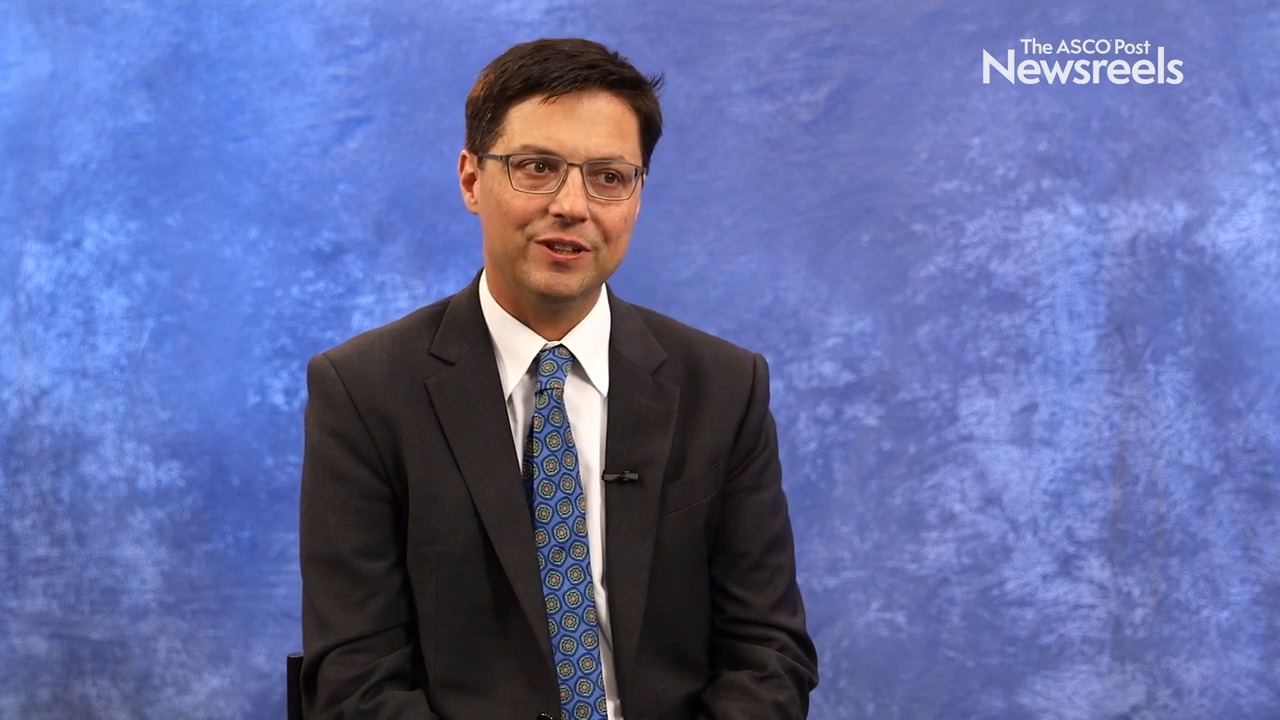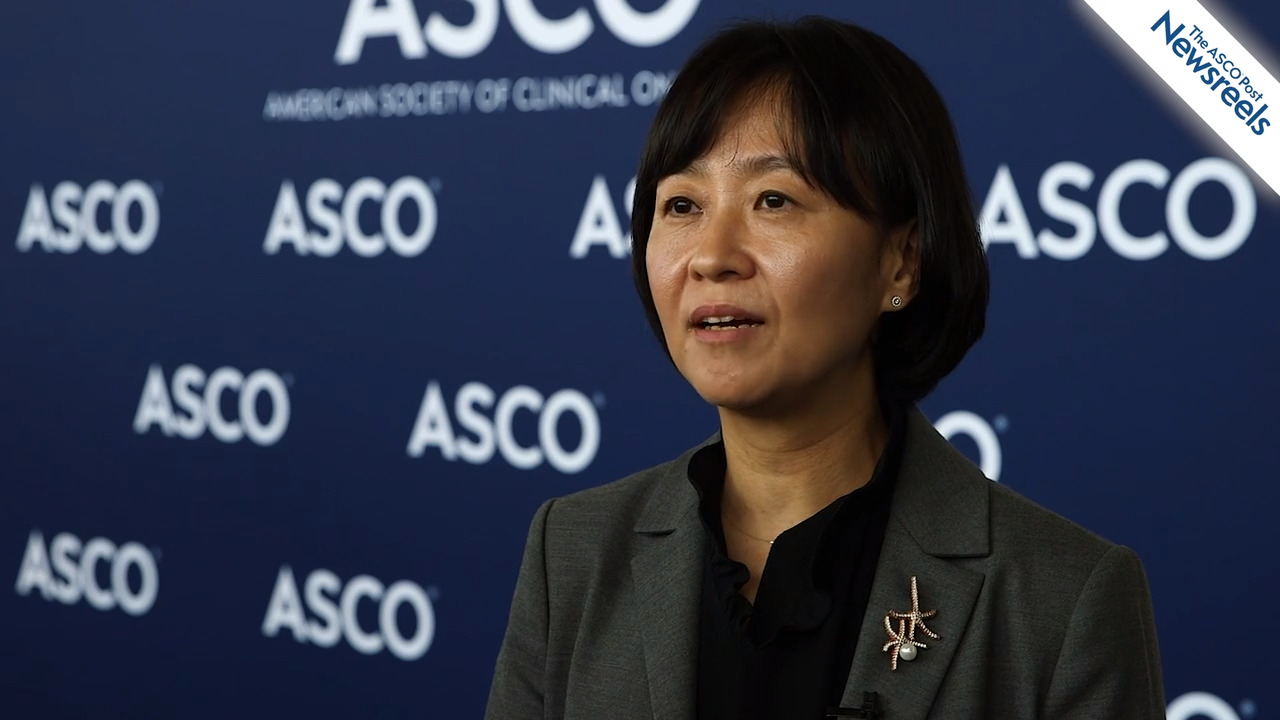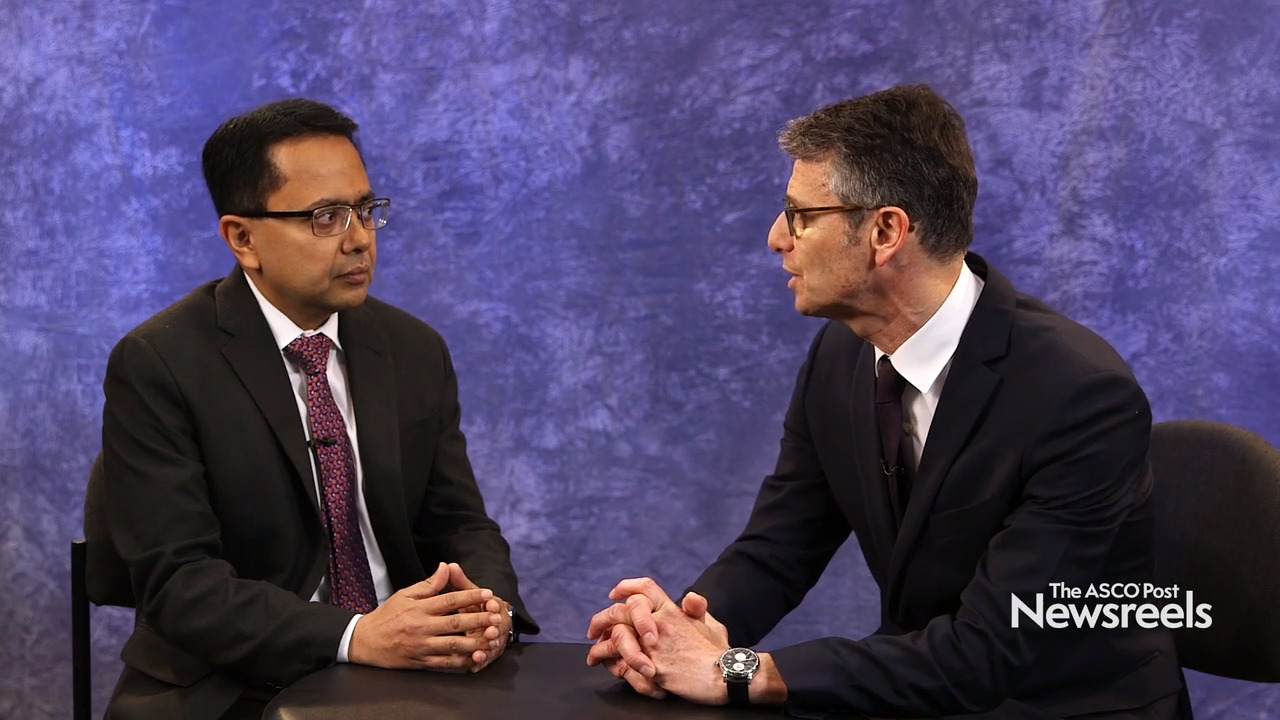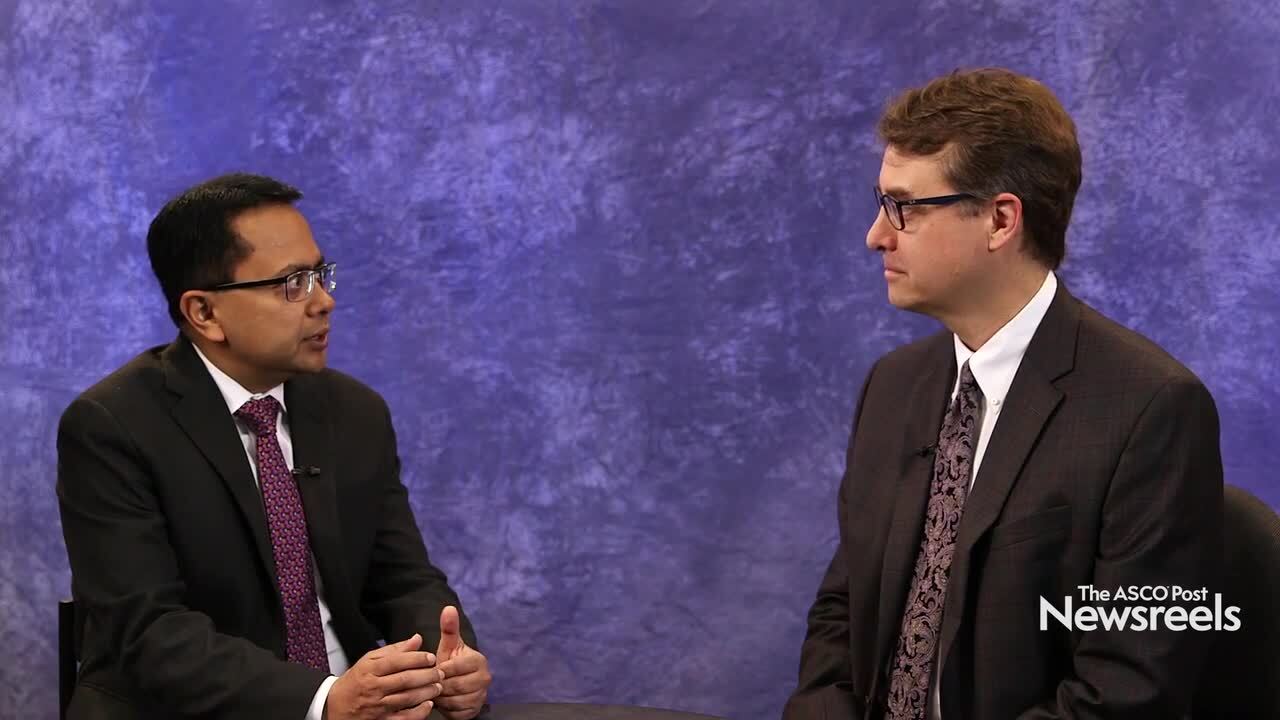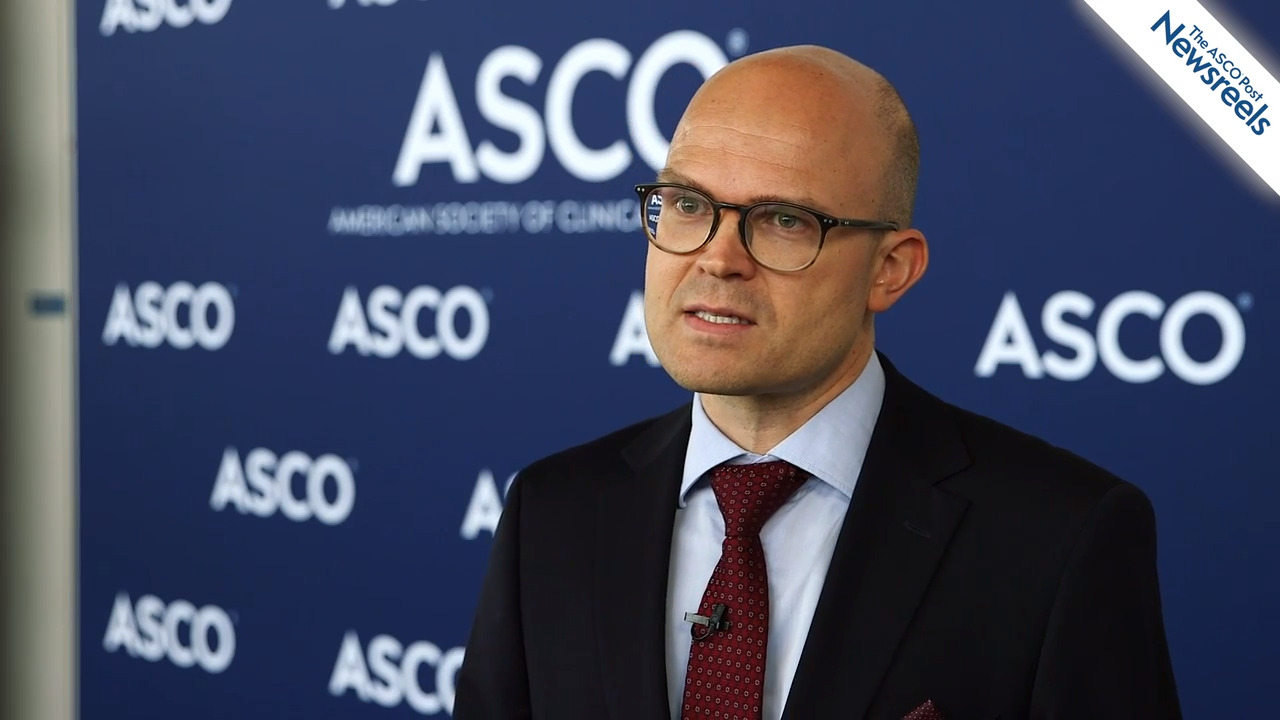Sagar Lonial, MD, on Smoldering Multiple Myeloma: Delaying Disease Progression With an Immunomodulatory Agent
2019 ASCO Annual Meeting
Sagar Lonial, MD, of Winship Cancer Institute of Emory University, discusses the potentially practice-changing phase III findings showing that lenalidomide substantially delayed progression of smoldering multiple myeloma to aggressive disease when compared with observation alone (Abstract 8001).
Leonard J. Appleman, MD, PhD, of UPMC Hillman Cancer Center, discusses phase III trial findings that showed a trend toward worse survival with pazopanib in patients with metastatic kidney cancer who exhibited no evidence of disease following metastasectomy (Abstract 4502).
Yeon Hee Park, MD, of the Samsung Medical Center, discusses phase II study findings that showed exemestane plus palbociclib with ovarian suppression improved progression-free survival compared with capecitabine in premenopausal estrogen receptor–positive metastatic breast cancer (Abstract 1007).
Neeraj Agarwal, MD, of the Huntsman Cancer Institute, and Arnaud Méjean, MD, PhD, of the Hôpital Européen Georges-Pompidou, Paris Descartes University, discuss an update to the CARMENA trial with new phase III study results on the benefit of cytoreductive nephrectomy followed by sunitinib vs sunitinib alone in metastatic renal cell carcinoma (Abstract 4508).
Neeraj Agarwal, MD, of Huntsman Cancer Institute, University of Utah Health Care, and Thomas W. Flaig, MD, of the University of Colorado, discuss phase II findings on a novel predictive biomarker of response to the two accepted neoadjuvant regimens for muscle-invasive bladder cancer: methotrexate/vinblastine/doxorubicin/cisplatin and gemcitabine/cisplatin (Abstract 4506).
Åsmund A. Fretland, MD, of Oslo University Hospital, discusses clinical trial findings on survival outcomes after laparoscopic vs open resection for colorectal liver metastases. The study he conducted with his team showed that the laparoscopic procedure did not jeopardize long-term survival (Abstract LBA3516).
